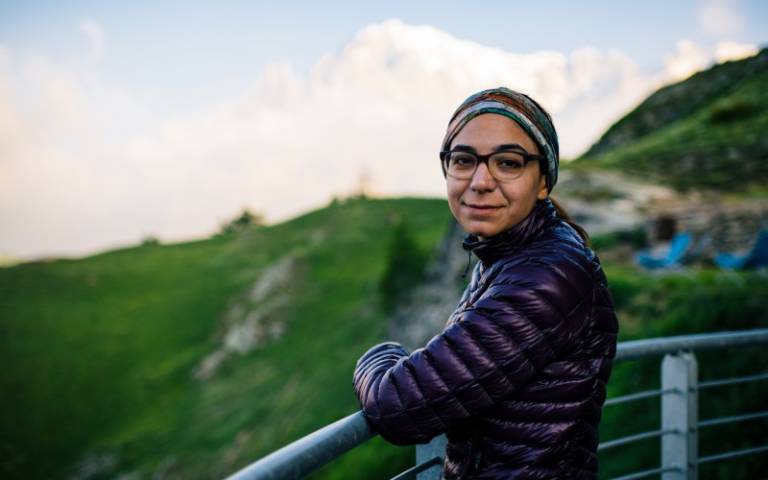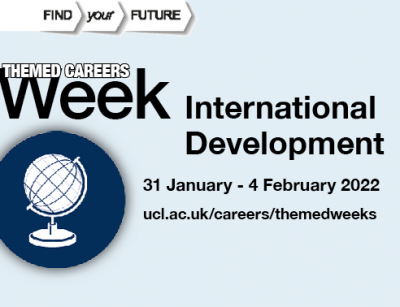Helping Nature Flourish in Cyprus with BirdLife: Vasiliki Anastasi
UCL Alum, Vasiliki Anastasi, shares her career journey beyond graduation and gives an insight into her current role with BirdLife, Cyprus.

3 February 2022
What is your current role and responsibilities?
BirdLife Cyprus is the most active non-governmental, non-profit conservation organization in Cyprus, with a mission to protect the wild birds of the island, their habitats and wider biodiversity. It does so in a number of ways, including through policy and advocacy.
This is the ‘wing’ of the organization’s wide scope of activities that I am mostly involved in.
As the Nature Policy Officer, I mainly focus on the most important natural areas in Cyprus, particularly advocating for their effective protection and management.
Part of my role is also to keep up-to-date on EU policy issues and try to influence EU policy and its implementation in Cyprus, especially on issues that have to do with protected areas and with turning agriculture nature-positive.
Describe your typical working day
People hear ‘conservation NGO’ and imagine that I wake up, grab the binoculars and head for the top of the mountain where I spend my day in nature.
I am not going to lie or try to embellish – while birds fly and chirp outside the window, most of my days are spent indoors and behind a screen. Reading studies, policy documents, environmental impact assessments for plans or projects that may have an impact on protected areas, preparing for and representing the organization in government committee meetings (that are mostly on some online platform nowadays), writing briefings, notes and letters. Lots and lots of letters.
While this may not sound like the most exciting way to spend one’s day, in fact, it can be. Because I am always conscious that every moment I spend reading, every word that I type and every minute I sit in a meeting, goes toward fighting to make Cyprus’ nature flourish. And to me, that is time well spent.
How did you end up in your current role?
I completed my BSc in Environmental Sciences at the University of Reading in 2009 and then went on to receive my MSc in Conservation from UCL in 2010.
I saw an advertisement for a policy position at BirdLife Cyprus as I was handing in my Master’s thesis and I thought I’d give it a go, although I didn’t believe anyone would pay attention to my application.
My thinking was that, at best, I would probably get some interview experience. I was incredibly lucky to be given the chance to join this organization so early in my career and for that, I will never forget to be grateful.
I then went on to have a three-year break a few years ago, where I had the chance to work for other local NGOs in the field of Environmental Education, while also completing my MA in Learning in Natural Sciences from the University of Cyprus. I resumed my duties at BirdLife Cyprus in 2018.
Vasiliki's advice to students who want to work in this sector:
“Volunteer, volunteer, volunteer. There is no better way to realise what you like to do than actually doing it or spending time close to people who do it, even for a little while. I always like to think that a good way to understand if you really love what you do, is to ask yourself: ‘Would I do this even if I was not getting paid to do it?’. If the answer is yes, then you know you are on the right path. Volunteering also looks great to potential future employers, so it’s a win-win situation.
What is the best thing about the sector?
The best thing about my work is also what makes it challenging. This revolves around the fact that I work for an NGO.
It is a true blessing to be part of a group of skilled and enthusiastic colleagues who never tire of working towards a goal that is also my personal passion.
The sense of ‘ownership’ that one feels in an NGO in terms of collectively designing strategy and making plans for where our work should focus in the future is also invaluable to me.
BirdLife is also an international NGO, so there are plenty of opportunities to exchange experiences and have inspiring discussions with colleagues from all over the world.
Being part of civil society though does have its downside, especially when your voice is not heard as much as you would like it to. Advocating for nature specifically only adds to the challenge, as the benefits of preserving it often require a long-term vision that politicians, government officials, entrepreneurs, and even the public often gravely lack.
Photo courtesy of Silvio Rusmigo.
 Close
Close


